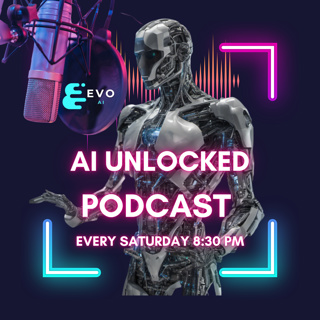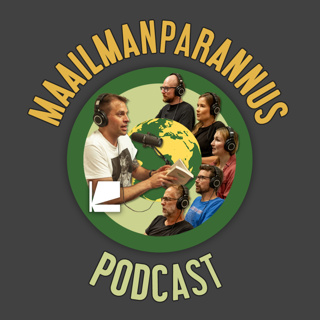
Empowering AI: The Secrets of the Encoder-Decoder Mechanism
In this episode, we will cover: Introduction to Encoder-Decoder Mechanisms Basics of Neural Machine Translation Deep Dive into the Encoder-Decoder Model The Power of Attention in Neural Networks Recent Advancements in Encoder-Decoder Mechanisms Practical Applications of Encoder-Decoder Models Beyond Transformers: Other Mechanisms Training and Fine-tuning Explained Inference in Encoder-Decoder Mechanisms Training Models with Attention Conclusion and Future Forecasts (5 minutes)
6 Loka 202342min

Natural Language Processing (NLP) - the way machines understand human language
This episode has the following structure and topics: Introduction to NLP AG limpse into Natural Language Processing History Understanding NLP: Basics and Mechanics Applications of Natural Language Processing The Potential of NLP Future Developments and Challenges Natural Language Processing in Action: Applications and Use-Cases Conclusion
1 Loka 202330min

APIs: The Gateway to Large Language Models
In this episode, we cover REST, SOAP, GraphQL, gRPC and WebSocket APIs. We also look at API principles from API First Design to Rate Limiting and OAuth. Then we look at API Tools from Postman to Swagger and Insomnia, then to API Gateway, SoapUI and JMeter. Then we move to some Real-World Applications of APIs in Driving Large Language Models such as Content Creation, Chatbots, Language Translation Services, Education, Sentiment Analysis, Voice Assistants, Text-to-Speech and Speech-to-Text Services. We also look at the mathematics that underpin APIs and future trends of APIs.
24 Syys 202326min

What is Deep Learning and how does it work?
Introduction to Deep Learning The Evolution of Deep Learning - A Historical Perspective The Brain Behind Deep Learning - Artificial Neural Networks: Types of Deep Learning - CNNs, RNNs, and More Training Deep Learning Models - How Do They Learn?: Real-World Applications - Where is Deep Learning Used?: Challenges and Ethical Considerations The Future of Deep Learning - What’s Next?:
17 Syys 202327min

What is Prompt Engineering?
In this episode, we cover what is Prompt Engineering, we look at what is a good prompt or a bad one, when there is too much or too little information in a prompt, how and why an LLM treats various words from a prompt in a different way and what decomposition means for crafting a good suite of prompts that can solve very complex problems.
3 Syys 202329min

An introduction to Large Language Models (LLMs)
In this episode we will cover: What are Large Language Models and What are Foundation Models? Major LLMs: Falcon LLM GPT -3 and GPT -4 PaLM BARD BERT Claude and Claude 2 LLaMA and LLaMA 2 ERNIE 3.0 Bloom Turing-NLG Chinchilla
27 Elo 202322min

Is AI dangerous ?
Can AI become a force of good or are we going to lose control over it? In this episode, we look at how AI can evolve as we are at a crossroads. Are we going to be smart enough and develop artificial intelligence to help us cure disease, extend life or explore the universe? Or, in our quest to develop AI as fast as possible, we will end up with a sentient artificial intelligence with a different agenda than ours and this will ultimately lead to the end of mankind?
27 Elo 202316min

What is AI ?
In our Inaugural Episode, we cover briefly: Section 1: Artificial Intelligence (AI) and Machine Learning Section 2: Supervised vs. Unsupervised Learning Section 3: Deep Learning and Generative Models Section 4: Understanding Generative AI Section 5: Applications in Various Business Sizes Section 6: Transformers in AI Section 7: Challenges and Solutions in AI Section 8: Prompt Engineering and Detection of Hallucinations Section 9: Text-to-Output Models in Business Operations Section 10: Q&A Segment for Businesses
27 Elo 202318min



















